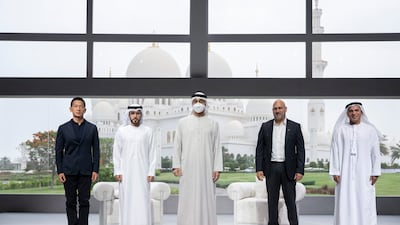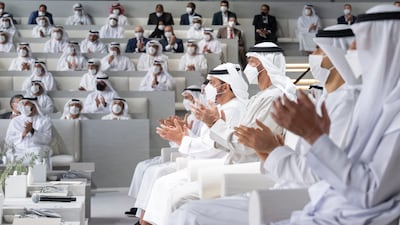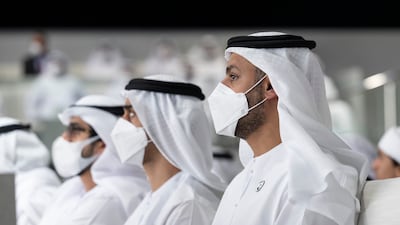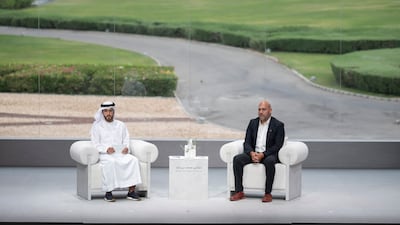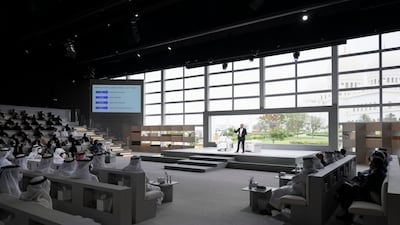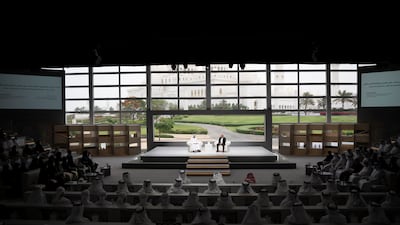The UAE is one of few countries in the world that has embraced the future by modernising its government systems, a leading strategist and digital transformation expert has said.
Salim Ismail, founding executive director of Singularity University, spoke at the fourth and final lecture of the Majlis Mohamed bin Zayed.
Mr Ismail is also the best-selling author of Exponential Organisations and Exponential Transformation and co-founder and chairman of OpenExO, a global community focused on innovation and digital transformation.
In a lecture titled “How Technology Grows Organisations into the Future”, he said the flexibility shown by the UAE in preparing for a digital future would allow it to quickly embrace new opportunities.
“All of those old business models are completely gone and so we see as we digitise, we need completely new business models to operate in this new world — subscription models, freemium models, advertising models, and so on,” he said.
“There are only two countries in the world that I think do future thinking properly. Singapore does it badly, you [the UAE] do it much better.
“Because almost all public policy globally is created defensively and reactively, and by doing it proactively and saying we know what the future looks like, let's intercept those curves, you create unbelievable possibilities.”

Speaking to an audience of officials, minsters and dignitaries, Mr Ismail said the UAE was able to adapt to the fast pace of changes brought about by technology and the disruptions they may bring.
“We've never had this many technologies move this aggressively, all at the same time,” Mr Ismail said.
“Drones, for example, are doubling every nine months in their price-performance; the speed at which we can image the human brain is doubling every year.
“And so, if you layer a solution on that technology, the solution scales along with the same underlying doubling pattern, which is why we're seeing so much disruption today.”
Mr Ismail presented four key fundamentals for organisations wishing to keep pace with the future.
The first is to embrace transformative technology. The second is to structure an organisation, whether government or private, in such a way that it is able to adapt to major technological transformations. The third is to change the mentality of dealing with new ideas and the fourth is not being afraid of development and change.
Earlier this month, the UAE Cabinet approved a strategy in which the digital economy will contribute 20 per cent to the gross non-oil national economy in the coming years.
Sheikh Mohammed bin Rashid, Prime Minister and Ruler of Dubai, said the Cabinet also approved the formation of a digital economy council.
The strategy aims to double the contribution of the digital economy to the UAE's GDP from 9.7 per cent to 19.4 per cent within the next 10 years.
The plan includes more than 30 initiatives, projects and programmes and five new areas of growth.
